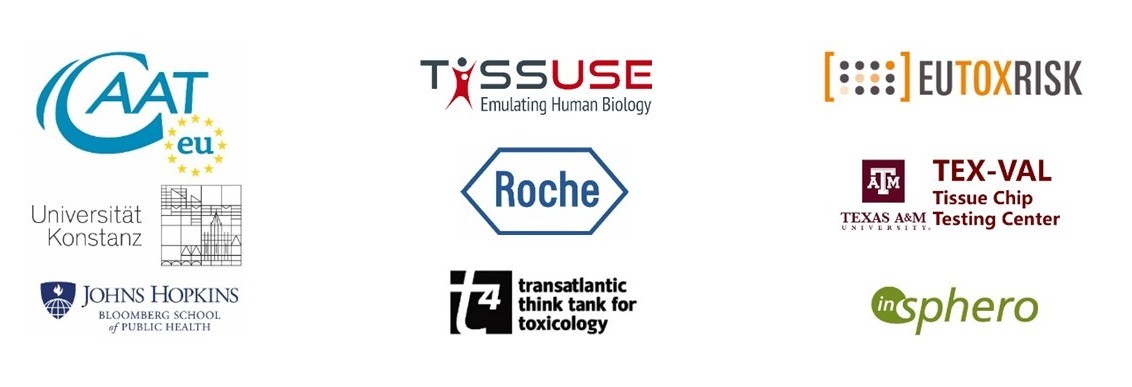Biology-Inspired Microphysiological System Approaches to Solve the Drug Testing Dilemma
Think Tank for Toxicology (t4) meeting organized by CAAT-Europe together with Hoffmann-La Roche, TissUse and EU-ToxRisk project

Time: June 18th - June 20th 2019
Venue: Titanic Comfort Mitte Hotel, Berlin, Germany
Working meeting with attendance by invitation only.
Outline:
Advanced human in vitro models are needed urgently to add predictive value to the preclinical evaluation of the safety and efficacy of new drugs and advanced therapies, thus, reducing the use of laboratory animals. The first microfluidic microphysiological systems (MPS) entered the academic scene more than a decade ago. Only a few dozen organ-on-a-chip papers had been published by a small community by 2010. Since that time, the scientific landscape has changed dramatically, with an increasing output of more than a thousand papers produced by over 360 research groups in 2017. MPS are now considered an enabling technology for the development of approaches to reliably predict the safety and efficacy of novel drug candidates.
A CAAT t4 Think Tank was held in June 2015 where thirty-six experts from academia, industry and regulatory bodies reviewed the status quo of MPS available at that time. They assessed industry needs and the broad variety of approaches with fit-for-purpose potential in the drug development cycle. The outcome was a roadmap towards the reduction and replacement of animals by MPS for the benefit of patients (Marx et al. 2016, ALTEX 33, 272-321, https://www.altex.org/index.php/altex/article/view/157/162).
Aims
The second CAAT-Europe t4 Think Tank on biology-inspired MPS approaches will mainly focus on issues of industrial adoption and regulatory FDA/EMA/ICH acceptance, including the validation of MPS-based approaches. Subsequently, reporting on their status quo and, most importantly, the definition of strategies and development of recommendations to overcome the roadblocks identified in the different fields will be the expected output of the workshop.
The report on the workshop in 2015 claimed that a paradigm shift in drug development can only be successful through MPS-based approaches if all parties involved (academia, industry and regulatory bodies) collaborate on a global scale. In line with this, the selection of potential workshop participants is hopefully another step towards that global collaboration.
